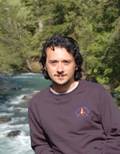Important Dates
27.03.2011
Workshop proposal deadline
(preliminary)
10.04.2011
Paper submission deadline
(preliminary)
10.06.2011
PhD Forum and "Work in Progress" deadline
(preliminary)
NEWS
Compressive Sensing Tutorial
by Dr. Volkan Cevher and Dr. Justin Romberg
Abstract
Compressive sensing (CS) is a new approach to simultaneous sensing and compression that enables a potentially large reduction in the sampling, communication and computation costs at a sensor for signals having a sparse representation in some basis. The CS measurement process is nonadaptive, and the recovery process is nonlinear, for which a variety of algorithms have been proposed.
The goal of this tutorial is to expose the CS theory to a wide audience in academia and industry who are interested in information processing in sensing systems. The tutorial will present the fundamentals of CS in an approachable manner, aiming to encourage engineers in industry and academia to exploit the new theory in their applications and their research. Although several theoretical results will be presented, the emphasis is on the intuition and the understanding of the theory. Applications will also be presented to motivate the theory and demonstrate the key benefits and the limitations of compressive sensing.
The tutorial will consist of a three hour lecture with interspersed question and answer periods. The presentation will be as active and participatory as possible to encourage better learning outcomes. The target audience level is the same as the target audience of the IEEE Signal Processing Magazine or the Proceedings of the IEEE.
Biography

Dr. Volkan Cevher is an Assistant Professor in the School of Engineering at Ecole Polytechnique Federale de Lausanne with a joint appointment at the Idiap Research Institute. He is also a Faculty Fellow at Rice University.
Volkan Cevher received his BSc degree (valedictorian) in Electrical Engineering from Bilkent University in 1999, and his PhD degree in Electrical and Computer Engineering from Georgia Institute of Technology in 2005. He held Research Scientist positions at University of Maryland, College Park during 2006˜2007 and at Rice University during 2008˜2009. In 2004, Dr. Cevher was awarded the Center for Signal and Image Processing Outstanding Research Award for excellence in signal processing research. He coauthored (with C. Hegde and M. F. Duarte) the 2009 Best Student Paper at the International Workshop on Signal Processing with Adaptive Sparse Structured Representations (SPARS). In 2010, Dr. Cevher received the Marie Curie Reintegration award from the European Commission. His research interests include signal processing theory, graphical models, and information theory.

Dr. Justin Romberg is an Assistant Professor in the School of Electrical and Computer Engineering at the Georgia Institute of Technology. Dr. Romberg received the B.S.E.E. (1997), M.S. (1999) and Ph.D. (2004) degrees from Rice University in Houston, Texas. From Fall 2003 until Fall 2006, he was a Postdoctoral Scholar in Applied and Computational Mathematics at the California Institute of Technology. He spent the Summer of 2000 as a researcher at Xerox PARC, the Fall of 2003 as a visitor at the Laboratoire Jacques-Louis Lions in Paris, and the Fall of 2004 as a Fellow at UCLA's Institute for Pure and Applied Mathematics. In the Fall of 2006, he joined the ECE faculty as a member of the Center for Signal and Image Processing.
In 2008 he won the ONR Young Investigator award; in 2009 he received a PECASE award and a Packard Fellowship; in 2010 he was named a Rice University Outstanding Young Engineering Alumnus. He is also currently an Associate Editor for the IEEE Transactions on Information Theory.
Dr. Romberg's research interests are on the interface between signal processing and applied harmonic analysis. Broadly speaking, he is interested in the role that mathematical signal structure plays in making difficult processing tasks much easier. Recently, he has focused on how sparse representations can make signal acquisition smarter and more flexible.

